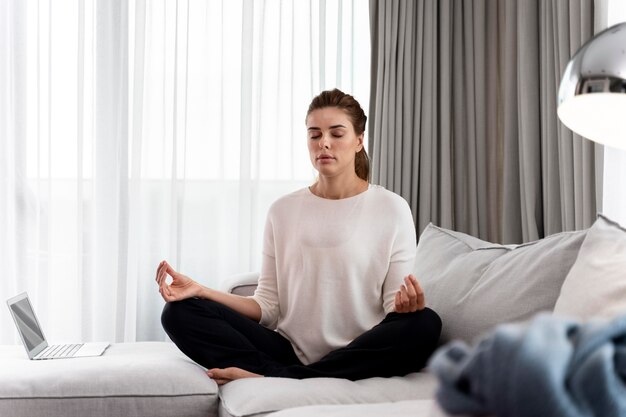Stress is a major contributor to the development or worsening of many chronic health conditions, some potentially life-threatening like high blood pressure, heart disease, and diabetes. It also affects mental and emotional well-being, leading to anxiety, depression, and cognitive decline. Occasional stress is normal and usually not harmful, but chronic stress can seriously impact your overall health.
If you’re looking for ways to reduce mental strain and tensions in your life, here are some helpful habits to try.
Body Tension
While stress starts in the mind, it also affects your body. This can result in physical discomfort like aches, pains, or fatigue, often in the shoulders and trapezius muscles. If you’ve been stressed for a long time, you might have noticed persistent pain in these areas.
Stretching is an excellent way to relieve this tension. Exercises such as shoulder rolls, cross-arm stretches, arm swings, and thread-the-needle stretches can help. It’s important to practice good posture by pulling your shoulders back while stretching. Massages can also alleviate pain by releasing lactic acid build-up. Anti-inflammatory plants can further enhance your relaxation routine and relieve pain quickly.
Meditation
Meditation fosters healing and relaxation by helping you put your thoughts into perspective and reduce worries. Research shows that mindfulness can improve attention span, self-awareness, memory, and learning abilities. These cognitive benefits help you stop endless overthinking.
To meditate, find a quiet, comfortable place, close your eyes, and focus on your breathing. Stay present and don’t dwell on thoughts that come up; just let them pass. As you get better at meditating, you can practice mindfulness even in noisier environments, which can be even more rewarding.
Sleep
Sleep is crucial for health, though it’s often undervalued. Lack of sleep affects learning, reaction time, and mood. If you struggle to fall asleep, you might consider natural supplements that can help you relax and relieve chronic pain.
A healthy sleep schedule benefits both your body and mind. It helps regulate emotions and keeps cortisol levels low, leading to better reactions to stress. Sleep also supports your body’s recovery processes, allowing your brain to flush out toxins and repair cells. This leads to better memory retention and information processing.
Staying Active
During stressful times, it’s tempting to stay inactive, but physical movement can be a significant stress reliever. You don’t need to be an athlete or follow a strenuous workout routine; even light activities like walking, biking, swimming, or jogging can help. Physical activity boosts endorphins, improving your mood and shifting your focus away from worries. Simple tasks like gardening or house cleaning can also be beneficial and help you declutter your space.
Journaling
Keeping a journal might seem unnecessary, but it offers several benefits. Writing down your feelings can help you release negative emotions, which prevents them from impacting your mental health and relationships.
Don’t worry too much about perfecting your writing; just let your thoughts flow freely. Later, you can revisit and reflect on your responses to stressful events, identifying areas for improvement. This practice can serve as a guide for more constructive reactions in the future.
Managing stress may seem challenging, but by taking a patient, step-by-step approach, you can start to see positive changes in your life.

